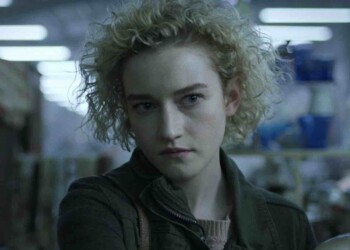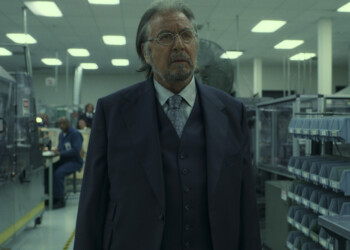A review of Johnny Depp’s new movie ‘Transcendence’— a flawed attempt at a futuristic sci-fi thriller…
By Patrick Guera — Staff Writer
When I first heard that Christopher Nolan’s (director of The Dark Knight trilogy) long-time cinematographer, Wally Pfister, was making his directorial debut with the help of Hollywood heavyweights Johnny Depp and Morgan Freeman, I was cautiously optimistic. This is a guy who stood next to one of the better blockbuster directors of this generation for each and every one of his major films. He was as much a part of the storytelling process as Nolan, so his directorial efforts would have a high bar to reach. Even more promising was a the futurist take on singularity: where artificial intelligence surpasses human intelligence. But Transcendence makes the mistakes so many other sci-fi cautionary tales have made before it. Perhaps the mere concept of singularity is something far bigger than any film can contain.
Transcendence stars Johnny Depp as Dr. Will Caster, the leading researcher in the field of artificial intelligence (AI). He creates an AI known as PINN, that is incredibly powerful, but ultimately limited by its inability to make moral choices. Dr. Caster believes it is possible to upload a human conscience to PINN and create a sentient AI that can cure disease, end famine, and create harmony on Earth. His brilliant theory is stopped short when a radical, anti-AI group known as R.I.F.T. poisons him, leaving him with weeks to live. His wife and colleague decide to upload his consciousness to PINN to carry on his plans, and hopefully, keep him alive through AI. The plan is a success, but his colleague, Max Waters (Paul Bettany: The Avengers, Iron Man) wonders if they have created something far too powerful, rather than preserving their dear friend. Dr. Caster’s wife (Rebecca Hall: The Town, Iron Man 3), obsessed with keeping his mind and spirit alive, uploads Dr. Caster’s AI to the internet, giving him access to all information on the entire planet. Together they build a research center in an isolated town, where the all-powerful AI creates nanobots capable of self-replicating, healing organic matter and merging said matter with Dr. Caster’s AI, creating a singularity that is too powerful to stop.
Sound like an exhausting plot? It is. Don’t get me wrong, Transcendence has its moments, but they are far too often overshadowed by poor decisions on the part of the characters and the director. Depp, while known as one of the biggest stars on the planet, doesn’t exude enough charisma to invoke emotion in the audience. Even before he is turned into a slick, 21st century version of Max Headroom his character falls flat. He carries the charm of binary code structured into the form of a Johnny Depp soundboard. The supporting cast does the bulk of the heavy lifting on screen, but they are given so little to work with as characters its no wonder they also appear as baffled as the viewing audience. Rebecca Hall’s character takes leaps far too strong to suspend disbelief. Paul Bettany’s characters makes major moral shifts with stoic faces rather than character development. Morgan Freeman is just there. Even the human baddies are reduced to glass-eyed terrorists, until they too are encompassed by this monotone, droning plot. We are left with characters that do their best to fill plot gaps with on-the-nose dialogue that helps guide the movie along. Robotic, artificial, sterile. Its all there. It’s a shame because all these great actors need is a great story to pull from.
Perhaps the most frustrating thing about Transcendence was the potential it had to be a great story. As an idea, Artificial Intelligence and singularity are fascinating subjects for amateur science geeks such as myself. Instead we got the same story most technology-fearing films give us: AI is far too dangerous when it gains singularity. The ending tried to veer ever-so-slightly from that, but in turn, leaned upon ham-fisted, “love conquers all” and “nothing beats the human spirit” shlock that I didn’t expect from this murder’s row of Hollywood pros. They didn’t ask bigger questions, they didn’t challenge convention. They took interesting and very real ideas and dumbed them down for an audience they assumed wouldn’t “get it”. The problem was audiences didn’t get anything.
Singularity is a dense idea and perhaps it is too dense for a feature film, or even a trilogy (The Matrix comes to mind). Perhaps what we aren’t really ready for is condensed essays on the ramifications of singularity. This would have been a great movie in the 80s, probably heralded as a cult classic along the lines of War Games or Red Dawn. But audiences are more sophisticated than filmmakers are giving them credit for these days. Its not enough to put Captain Jack Sparrow on screen and cross your fingers in hopes that audience won’t notice they’re being told the same story over again, and poorly at that. If there is anything I can take away from this film, it’s that we should leave singularity to future minds who can tackle it with experience.






